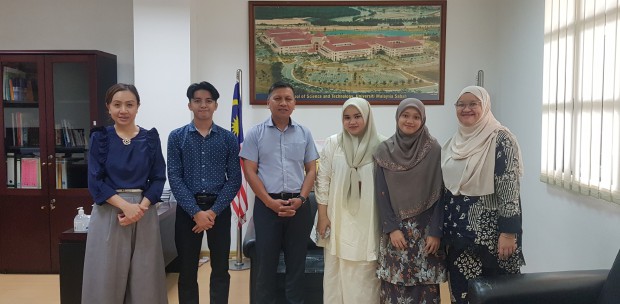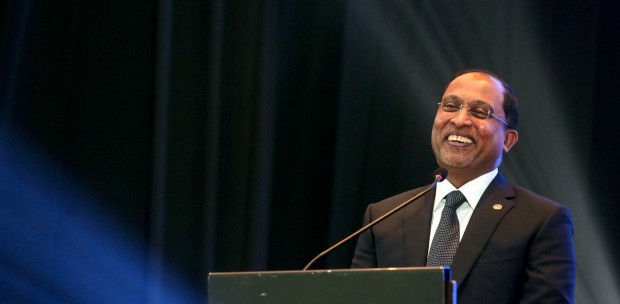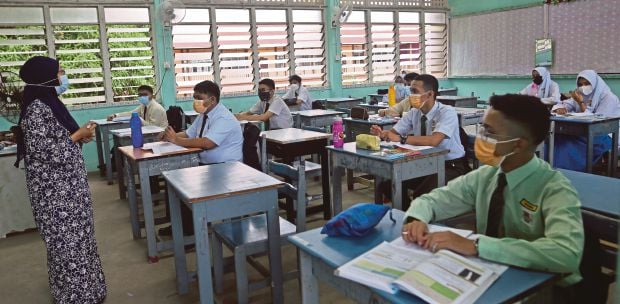Universiti Teknologi Mara (UiTM) final-year student Nur Syazni Khairul Anuar was looking forward to starting her 16-week internship in the Human Resource Department at a company in Seremban, hoping that she could get a taste of real working life before she graduates.
It was only three weeks into the internship when the government enforced the Movement Control Order (MCO). She was then informed by the company that she could not work from home, given the job scope included accessing data and personal information.
Feeling devastated, she opted out of the internship programme as suggested by the university.
"I was just adjusting to the working environment and learning how to handle my responsibilities. Despite what happened, I believe that it was for the best. What matters most is our safety and health," said the Bachelor of Mathematics student.
According to the university's Faculty of Communication and Media Studies internship coordinator and lecturer, Mohamed Hamzani Mohamed Izzamudin, 80 per cent of students from the faculty are working from home, while the remaining are unable to work remotely.
However, UiTM has taken a stringent measure not to allow students to go to work throughout the MCO period despite being in the essential services, said Hamzani.
"We are proposing two options for students to complete their industrial training. For those who are working from home, they should be able to continue as usual according to the academic calendar.
"Students who are not working from home need to discuss with the university and internship supervisors to execute a case study related to the industry. The case study will be evaluated at the end of the semester as part of their internship progress.
"At the moment, UiTM is actively communicating with the industries for future internship placement. Students are advised to prepare themselves with necessary documentation, as well as online interview or video resume."
Another UiTM student, Nurul Asyiqin Mohd Fauzi, is among those who need to work from home.
"It is not easy for the company to allow interns to work outside of the office due to an unsecured network. Most of the information and documents are restricted within the company and cannot be disclosed to others.
"Hence, I am assigned an external task while working from home. I have to plan my work schedule properly to fulfil my internship requirements.
"As interns, we are both students and employees. We are bound to have issues between the two parties. Both need to tolerate and come to an understanding when it comes to making a decision, especially during a crisis such as this.
"The university should be more lenient and cater to internship issues on a case-to-case basis as every company has its own policies."
Universiti Malaysia Pahang (UMP) Career Placement and Development Centre (CPDC) director Dr Irene Ting Wei Kiong said all students must undergo mandatory industrial training.
Engineering programme students need to do it for at least 10 to 12 weeks, while non-engineering students need to undergo internships for a minimum of 20 to 24 weeks after completing their final semester, she said.
However, Irene said, special guidelines released by the Malaysian Qualifications Agency stipulate that universities may exempt students who have completed at least 70 per cent to 80 per cent of their industrial training due to the enforcement of the MCO.
"Based on the data provided by UMP industrial training facultative representatives, there are 26 diploma and 51 degree students undergoing industrial training as required by their respective companies operating in the essential services.
"Twelve diploma and 390 degree students are working from home, while 233 diploma and 271 degree students from the non-essential services have extended their internship period. Five students dropped out of their internships due to permanent closure of their attached companies.
"UMP encourages students undergoing industrial training in the essential services to continue as required by their respective companies. The university management also urges companies, which are hosting UMP students as interns, to implement the highest health protocols for students' safety purposes.
"For students who couldn't go back to their hometowns and are stuck at temporary accommodation near their internship locations, UMP management has offered a financial aid of RM200."
Irene said CPDC has come out with specialised guidelines for affected internship students during the MCO.
"First, students should check with their supervisors whether they need to extend their internships. If replacement is necessary, students should fulfil the companies' requirements.
"Next, regarding the discontinuation issue, students may replace industrial training with appropriate alternatives that involve industrial collaboration and supervision by industry practitioners with approval from their faculties.
"However, this depends on the suitability of the field of study, as well as consideration by related professional bodies."
UMP industrial chemistry student Chia Yong Jun has decided to continue with his internship at a company in Klang, Selangor.
"Due to the nature of my job, which includes hands-on practice and lab work, it is impossible for me to work remotely. Since I am from Sekinchan, Selangor, I rented a hostel room near the industrial training location.
"I used to carpool with a friend, who is also doing his internship at the same company. However, he went back to his hometown and decided to continue with the internship after the MCO is lifted.
"Since then, I have been commuting to work by taking Grab rides every day. I spent RM16 per day for transportation which is quite a lot," he said, adding that the internship allowance and UMP financial aid have helped him a lot.





